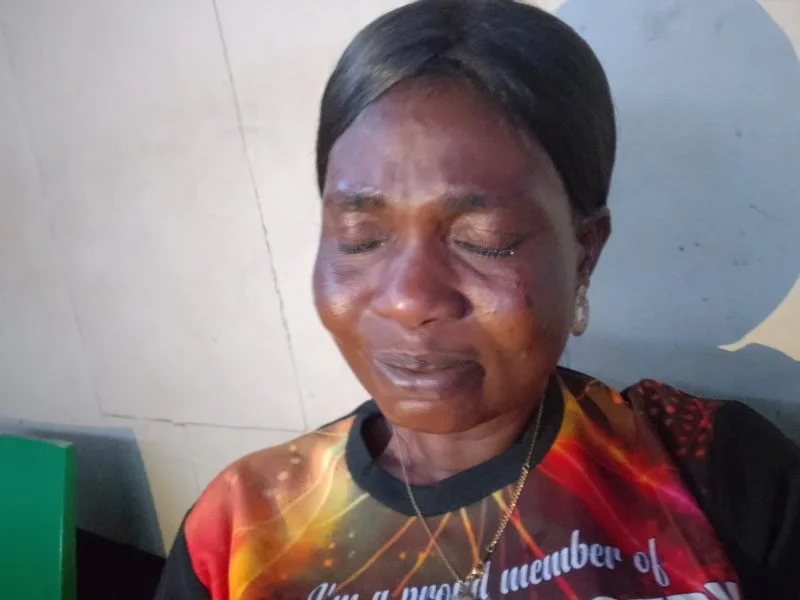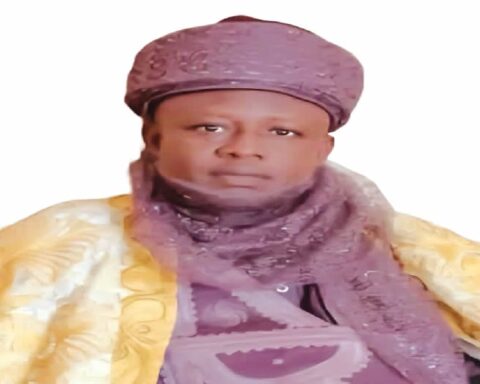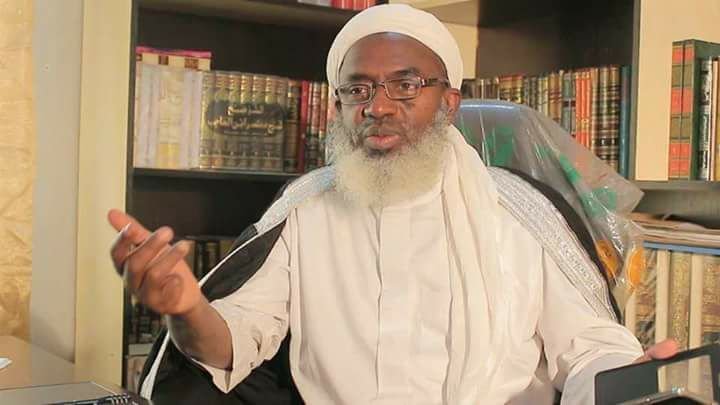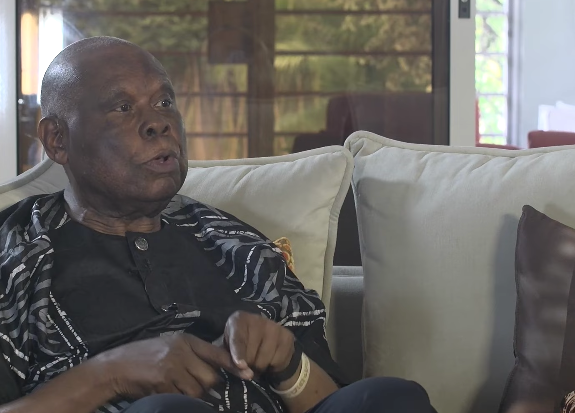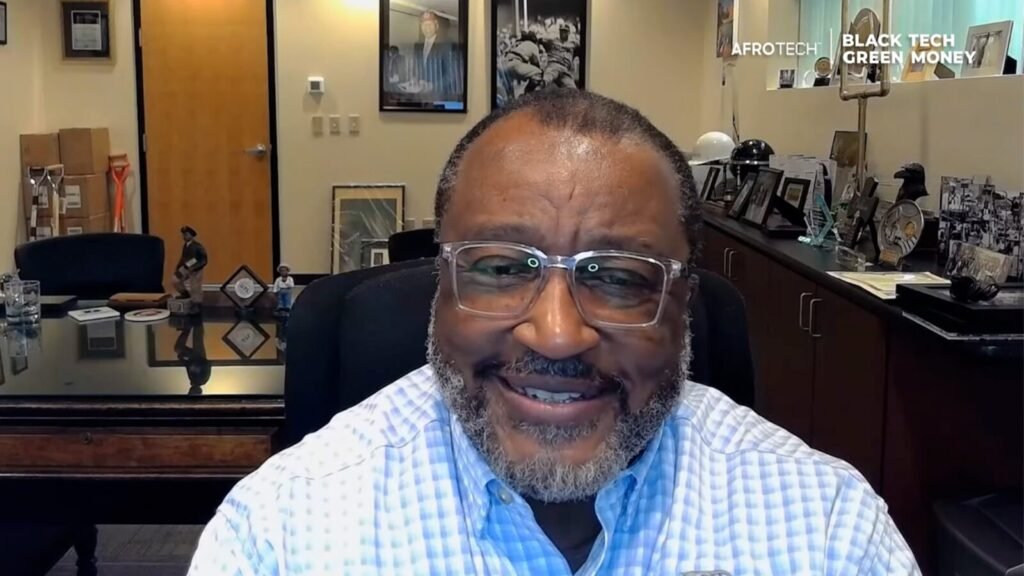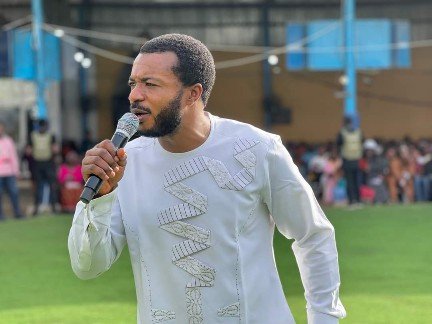In Nigeria’s southeast, fear is palpable and human rights have taken a back seat due to a grim new reality. Young, able-bodied men vanish without a trace after being arrested by joint law enforcement operatives. For the women left behind, wives, daughters, mothers, and sisters, life has become a haunting echo of the classic play Waiting for Godot, where they endlessly wait for answers, for justice and the return of their loved ones. Investigative Reporter, JULIANA FRANCIS, journeys to the southeast, sitting face-to-face with the silent grief and anguish of these women, courageous enough to speak out. She tells their haunting story of trauma and a desperate plea for closure.
When Mrs. Iganga Uzoamaka learned that an investigative reporter was in Enugu State, working on a story about men and women who had seemingly vanished into thin air after being arrested by Nigerian law enforcement officers in the southeast, she frantically ran from pillar to post to raise money for her trip from Ebonyi State to Enugu. She was determined to tell the story of her husband’s disappearance, hoping he would soon be found.
Uzoamaka, like many who seek media intervention in what they believe are hopeless cases, quietly slipped into the building where the journalist was concealed, hoping to share her plight.
In the southeast, the pall of fear is almost tangible; people move as if treading on eggshells, wary even of their shadows. Human rights violations incidents are only whispered behind locked doors.
Uzoamaka looked worn and exhausted. As she recounted her ordeal, she fought desperately to hold back her tears, but the struggle was in vain. They traced silent paths down her gaunt, time-worn cheeks.
The 42-year-old is a mother of four children, said that her husband, Sunday Iganga, had not been seen since the 26th of June 2023, when some state actors, comprising personnel of the Nigerian Police Force, DSS, soldiers and others stormed her Enugu State home at about 01:am to whisk away her husband.
Almost choking with emotion, she said: “The law enforcement team that came to arrest my husband was made up of police officers, DSS operatives, and soldiers. When they knocked on the door, my husband went to open it. They asked for his phone and began searching through it without telling us why they were there. Then they asked if he had attended the Biafra meeting that was held at a primary school on the Sunday he was arrested, and he said yes.
“They handcuffed him and started leading him away. I followed, asking where they were taking my husband, but they only ordered me to go back inside. Then they drove off with him.
“At daybreak, I began searching for him. There was no place in Enugu State I didn’t go, including the State Criminal Investigations Department (SCID), the Enugu State Police Command, and the Anti-Kidnapping Unit, yet I could not find him.
“Since then, my life has been a journey of confusion filled with moments when I simply didn’t know what to do. Raising four children alone felt overwhelming, and I constantly questioned my decisions. Should I remain in Enugu or return to our village in Ebonyi State, hoping to find some direction?
“In the end, I remained in Enugu, clinging to the hope that my husband would return home. But when the landlord served us a quit notice, we had no choice but to move to Ebonyi State. I am appealing to well-meaning Nigerians, both within the country and abroad, to join me in pleading with the Federal Government and law enforcement agencies to help locate my husband and secure his release, so that our children can see their father again. I am exhausted.
“The reason I rushed to Enugu State this morning from Ebonyi State is to find out if anyone has seen or heard from him, or if there is any news about him, whether he is alive or dead,” she said.
When asked how she had been coping with feeding and caring for four children amid Nigeria’s harsh socio-economic conditions, Uzoamaka replied: “My children and I have been surviving through the goodwill of people, because this situation forced me to stop the work I was doing. I no longer have the transport fare to get to work. I was working as a nurse at Our Saviour Medical Centre. My husband is a trader.”
The Nigerian government has designated the Indigenous People of Biafra (IPOB) as a terrorist organisation. In 2017, under the Nigerian Terrorism Act, IPOB was declared a terrorist organisation. This declaration was nullified by a High Court sitting in Enugu in 2023. However, later that year, the Abuja Division of the Court of Appeal upheld the Federal Government’s 2017 proscription of IPOB as a terrorist group.
The United States Department of Defence (USDD) defines terrorism as “the calculated use of unlawful violence or threat of unlawful violence to inculcate fear; intended to coerce or to intimidate governments or societies in the pursuit of goals that are generally political, religious, or ideological.”
IPOB, or Biafra, now used interchangeably, advocates independence from Nigeria, covering parts of the Southeast and South-Central regions. Its proscription has fuelled violence, prompting repeated government crackdowns by the Police, DSS, and military. Numerous militia groups now profit from the crisis, with both state and nonstate actors turning the Southeast into a boiling cauldron where blood stains the streets.
The insecurity crisis in the southeast has fuelled widespread human rights violations, including illegal arrests and prolonged detentions. In some cases, men and women labelled IPOB/Biafra have simply disappeared after arrest, with loved ones unable to trace them and law enforcement agencies denying custody.
According to Action4Justice Nigeria, a suspect must be brought before a court within 24 hours of arrest or 48 hours if immediate arraignment is impossible. Any period beyond this may constitute unlawful detention, though the court may assess the reasonableness based on the circumstances. Where bail is denied due to the nature of the offence, detainees must be given adequate time and facilities to prepare a defence, including access to a lawyer. Those held without bail must be tried within two months of arrest, while those granted bail must be tried within three months.
Ms. Merit Echezonam Ifedi is another Nigerian whose life mirrors the haunting essence of the classic play Waiting for Godot. For more than four long years, she has been waiting, clinging to the fragile hope of seeing her mother and father again. Merit, 22, went into depression after frantically searching for her parents, not knowing what had become of them.
She said: “My parents, Nwada Ifedi Calista and Mazi Ifedi Sunday, were abducted by operatives I believe are from DSS. It has now four years since they abducted my parents. This year (2024), in November, it will be four years. They were abducted on 23rd November 2021 from our residence, Railway Quarters, 8B Station, Opara Avenue, Enugu State.
“This happened very early in the morning. These operatives stormed into our home and said they were looking for someone. They barged into our house with arms and ammunition. The group had soldiers and others. We demanded our phones, and when we asked them what they were looking for, they refused to tell us anything.
“They just kept browsing through all our phones, searching for some phone numbers. They also searched mine and those of my siblings, followed by my mom’s and dad’s phones. One of them suddenly shouted, ‘Here is the number!’”
The atmosphere was tense that fateful day. Merit said that despite the fear, they still mustered the courage to ask whose phone number they were talking about, but the operatives paid them scarce attention.
She recollected: “We didn’t understand what was going on, just so much shouting on their part and fear on ours. I still remember our dog barking… barking… so much barking, as if trying to wake us up, to warn us, before operatives barged into our apartment.”
Merit added: “They ordered my dad to make the dog keep quiet, or they would shoot it. Then they said they had found what they were looking for and ordered my mom to come with them.”
Merit said her dad refused to let their mom go with the operatives, so he went along with her. When the children tried to follow their parents, the operatives chased them back.
Merit further recounted: “One soldier stood in front of our door, armed with a gun. He ordered us not to speak, not to make a sound. We sat inside, frozen with fear. After a while, they rushed back outside. From the window, we saw their vehicles speeding away, about 10 Hilux vans and two Prado Jeeps. That was when we started screaming, waking up our neighbours.”
When the neighbours asked Merit and her siblings what had happened, they struggled to respond. They were not even sure themselves, only that their mother had been taken away in the dead of night, accompanied by their dad. They also did not know where the soldiers, DSS operatives, and Police officers had come from.
“All we know,” Merit said, “is that most of them were dressed in black-on-black, while others wore army uniforms.”
Thus began the desperate search for Calista and Sunday. The children and relatives went from the 82 Division Military Base to various police stations, but everyone denied knowing what had happened to the arrested couple. Finally, they turned to human rights advocates and lawyers for help.
According to Merit, it was only after they described the men dressed in black that some activists identified them as DSS operatives. Alarmed, the children and relatives rushed to the DSS office in Enugu, but the agency denied holding the couple.
Merit recounted that, through the intervention of a particular female activist, they eventually discovered that their parents’ names appeared on the list of suspects detained at the DSS office in the New Market area of Enugu State.
“When we got that confirmation,” Merit said, “we went there to see them, but we were refused. The DSS officers told us that if we made any move, they would kill us. We were seriously threatened. Still, we did not give up; we kept trying until they finally told us our parents had been moved to Abuja.”
She added that although they heard their parents had been transferred to Abuja, they were unsure if it was true. “At that point,” she said, “we didn’t know what to believe anymore.”
The siblings also did not have good encounters with some lawyers. She said, “After the lawyers collect money, they later claim they can’t do anything, saying our parents’ case seemed to involve IPOB. They keep taking money and calling it a difficult case, yet the lawyer should have at least tried to ensure our parents were taken to court. They couldn’t manage that, and they also couldn’t tell us what was going on with our parents. It was the third lawyer we hired who finally told us that our parents had been moved to Abuja.”
Merit recalled that her paternal aunt, Chioma, had done most of the running around. Eventually, when Chioma grew tired of being strung along and still had no chance to see the couple or even confirm whether they were alive, she sought the help of human rights advocates.
What troubles Merit most is that, according to one activist, their parents had been in DSS custody in Enugu State before being moved to Abuja, yet the DSS had consistently denied it.
“My aunt Chioma died last year because of this case. The last we heard about our parents was that they had been moved from Abuja to Minna, in Niger State,” Merit said.
Merit remains baffled as to how her mother, Calista, a teacher who also sells soya milk to supplement her income, could become a guest of the DSS for nearly four years and counting.
The eldest of three children, Merit explained that her mother was arrested because the team that came for her intended to use her as a soft target to capture someone on her phone contact list.
She said mournfully, “My mom did not commit any crime. They just took her and our dad, and to date, we’ve not seen or heard from them. We don’t know whether they were killed or alive.”
After the traumatic raid that tore through their home, the family’s life unravelled. Merit had to drop out of tertiary school when she could no longer afford the fees. Determined to see her younger siblings finish their education, she learned tailoring and now sews for a living.
Sighing, she said, “I just want the government, the DSS, or whoever is holding my parents to release them. Charge them in court or grant them bail, we just want them back!”
This reporter spoke with another distraught wife, Mrs Oluebube Onyemafor. In her case, she was eight months pregnant when her husband, Kingsley Onyemafor, was arrested in 2021.
She recounted the story thus: “In 2021, my husband was arrested just as he returned from work. My husband said he wants to visit his godfather. I urged him to wait and go another time because it was already dark outside. He said it had been a long he saw his godfather. He gave me money to prepare food and left.
“After I was done, I started waiting for him because I didn’t want to eat alone. However, if he was going to be late, he usually notified me by calling. After waiting for a long time and not seeing him, I became worried. I had to go to where he used to hang out with his friends, but he was not there.
“At about 8 pm, a young man came and asked if my husband, Kingsley, was back. He is a close friend of my husband, and they are in the same meeting. They also both bear the same name, Kingsley. When he asked me that question, I panicked, and I was eight months pregnant at that time. I replied that he was not yet back since he left home at about 5 pm.
“He said that the Police have arrested Kingsley. He said that the Police called him, asking him if he was Kingsley, who repairs AC. Immediately, I heard the word, ‘Police,’ it was like I had died. The man said that he gave the Police my husband’s phone number. I called my husband more than 50 times, but there was no response.
“My neighbours advised that I should go to bed. In the morning, when I woke up, I went to stay outside waiting to see if he would come back, but he did not. Up to date, I haven’t seen my husband, and no one has heard from him.
“His family are not even putting in the effort to know if he is alive or dead. If they say I should go to Abuja, or anywhere, I am the only one who goes, even as a nursing mother. The last time I saw my husband was at our house before he left to see his godfather, and it was also the day he was arrested. I saw him off to board a tricycle before I left to go and buy things to prepare food. His friend, also called Kingsley, who came to tell me about my husband’s arrest, was also arrested, but he was later released. I don’t know why they are still detaining my husband.
“I don’t even know the offence of my husband; the police had not told us. They have not brought any court charges or stated his crime. As it is now, I don’t know whether he is alive or dead. I don’t know anything!”
Oluebube recalled that her husband’s friend told her that Kingsley was taken to the State Criminal Intelligence and Investigations Department (SCIID), Owerri, Imo State Police Command.
Sighing tiredly, Oluebube said: “We have only one child, and the child is just four years now. I am just a salary earner, and the last job I started was in December 2023. February 25th will make it four years since my husband was whisked away by police operatives.
“I repeatedly wanted to go to the SCIID, but my husband’s people refused. They said I was pregnant and that I could be arrested too. After I gave birth, I didn’t go there. I went to meet Barrister Ejiofor; he is the one in charge of everything now. There was a time the barrister called us for an interview. Ever since then, I have been calling, checking if they had released him or not, to see if anything had been heard about him, but nothing has changed.”
Another woman, whose life appears to have been paused, is Mrs Chinyere Chinedu. A mother of four. She said that on the fateful day in question, it was around 2 p.m., when her children rushed in to tell her that some people were taking their daddy away.
She would later hear that her husband, Pastor Chinedu Nwachukwu, was arrested in place of his nephew, whom the police had been looking for.
Chinyere said, “I asked what happened, and they said police took my husband. I didn’t know what was happening because I was inside bathing. I heard that they just entered our church premises and arrested my husband, and since then, that was it. I don’t know why they arrested him. I am just tired, and to date, I have not seen or heard from him.
“On that day, when I rushed out, I asked where my husband was, and people said he was inside the vehicle. When church people went to the police station, the police said they received a report and that was that. This thing happened on April 29, 2021. I have never heard from him again. It happened in Port Harcourt, Rivers State.
“They took him from Rivers State to Imo State. They said he was taken to the Tiger Base Police in Imo State. Someone called me to give me this information, and I have been trying the number, but it was not going through. Someone saw him at the Tiger Base Police, and since then, I have not seen or heard from him.”
Chinyere said that since the disappearance of her husband, she had not been herself, stressing that her not knowing what had become of Pastor Chinedu was distressing to her and that taking care of four children was tough.
She recollected: “We have gone to the Tiger Base Police in Imo State with a lawyer, but we were chased out. We were refused access to him. Since this incident, I have been suffering. Anywhere I see work, I will just apply and work. Like today, I was working on a farm.”
